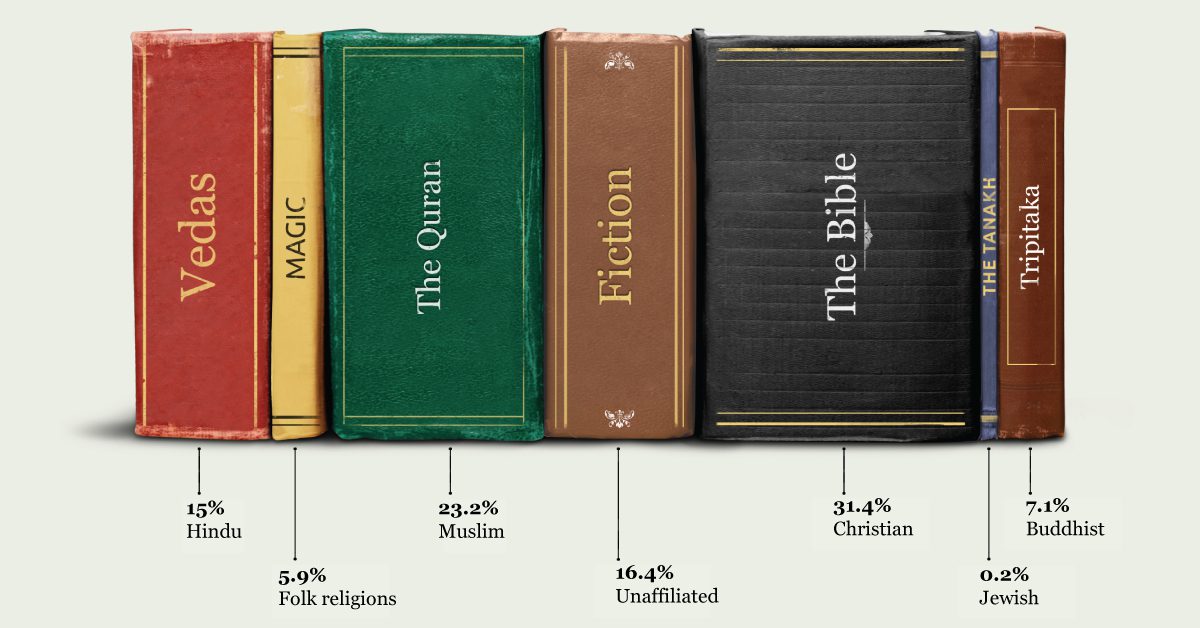This content introduces 10 lesser-known religions from around the world. It briefly describes each religion and their key beliefs and practices. The religions mentioned include Yazidi, Jainism, Zoroastrianism, Caodaism, Rastafarianism, Shinto, Candomblé, Sikhism, Tengrism, and Santo Daime. It highlights their origins, unique features, and influences from different cultures and traditions. This introduction offers a glimpse into the diverse and rich religious landscape of the world, showcasing religions that may not be as well-known as others but have significant followings and cultural significance in their respective regions.
10 Lesser-Known Religions from Around the World
1. Yazidi
The Yazidi religion originated in the northern regions of Iraq and is centered around the religious beliefs and practices of the Yazidis, a religious minority group. Yazidis believe in a single God who created the world and is supported by seven angels. They have a distinct belief system that combines elements from different ancient religions.
2. Jainism
Jainism, founded in ancient India, emphasizes non-violence and respects all forms of life. Jains strive for perfection through self-discipline and self-control. They believe in the concept of karma and seek liberation from the cycle of birth and death through spiritual practices.
3. Zoroastrianism
Zoroastrianism, one of the oldest known religions, was founded by the Iranian prophet Zoroaster. It focuses on the constant battle between good and evil. Zoroastrians believe in one supreme God and strive to live a righteous life, promoting truth, purity, and good deeds.
4. Caodaism
Caodaism is an indigenous Vietnamese religion blending elements from various major world religions, including Buddhism, Confucianism, and Taoism. It emphasizes the worship of ancestors and incorporates a pantheon of saints and deities. Followers of Caodaism believe in the ultimate unity of humanity.
5. Rastafarianism
Rastafarianism emerged in Jamaica during the 1930s and is influenced by both Christianity and African mysticism. Rastafarians worship Haile Selassie I, the former emperor of Ethiopia, as a messianic figure. They advocate for the repatriation of African descendants and the use of marijuana as a sacrament.
6. Shinto
Shinto is the indigenous religion of Japan and centers around the veneration of nature and spirits known as kami. Shinto emphasizes ritual practices, the importance of harmony with one’s environment, and the respect for ancestors. It plays a significant role in Japanese culture and traditions.
7. Candomblé
Candomblé is an African-Brazilian religion that incorporates elements from traditional West African religions and Roman Catholicism. Candomblé practitioners believe in the existence of a supreme being and various deities called orixás. Rituals often involve dance, music, and possession by spirits.
8. Sikhism
Sikhism was founded in the 15th century in the Punjab region of South Asia. Sikhs believe in one God who is formless and represented by the Guru Granth Sahib, their holy scripture. The faith promotes equality, social justice, community service, and emphasizes the importance of meditation and selfless devotion.
9. Tengrism
Tengrism is an ancient religious belief system that originated among the Turkic and Mongolian peoples of Central Asia. Followers of Tengrism worship Tengri, the highest god of the eternal blue sky. The faith encourages harmony with nature and ancestral reverence.
10. Santo Daime
Santo Daime is a syncretic religion that emerged in Brazil during the early 20th century. It combines elements of Christianity, indigenous Amazonian beliefs, and African spiritual traditions. The sacrament of ayahuasca, a hallucinogenic brew, is central to their rituals, which include singing, dancing, and spiritual healing.
